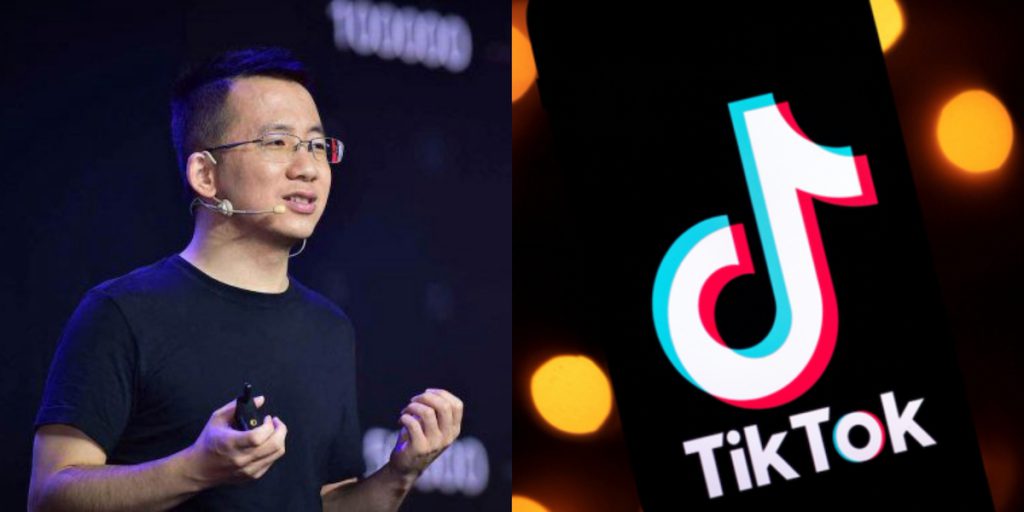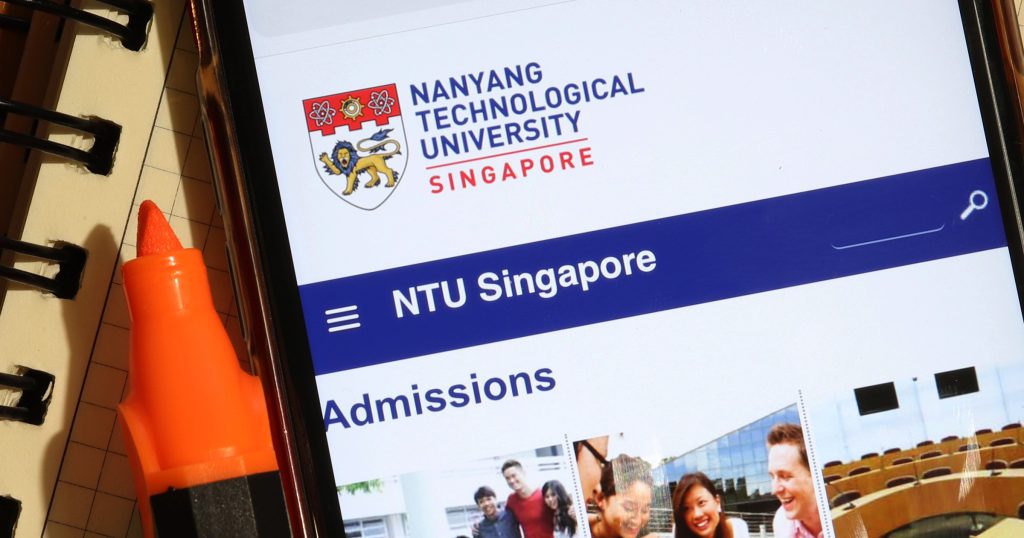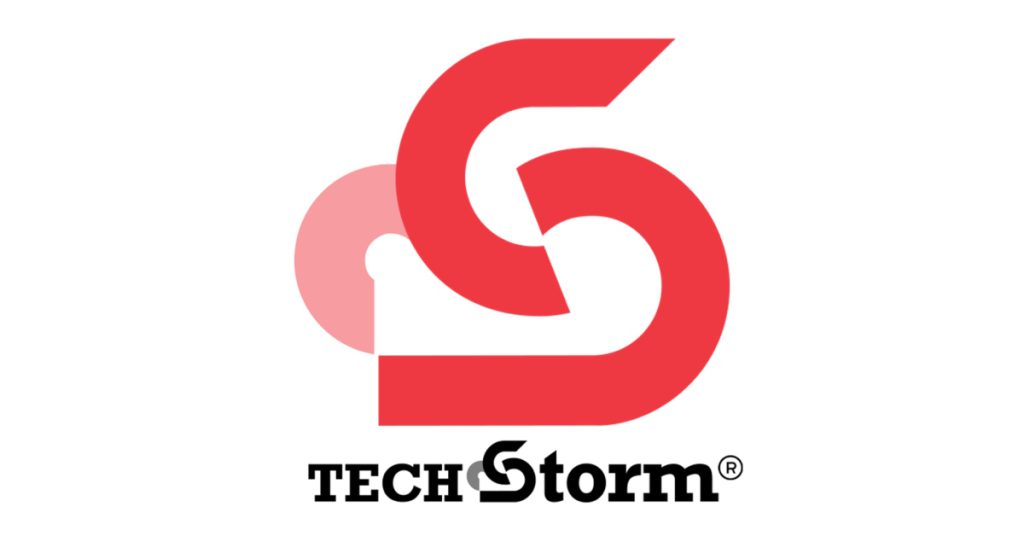The billionaire founder behind TikTok and its parent company ByteDance, is far less famous than the video-sharing tool that’s become the most downloaded app in the world.
TikTok may have achieved worldwide success, but not many people outside of China are aware of the man behind the app.
How did a locally-trained software engineer outsmart the numerous news portals and video apps by the likes of Tencent Holdings and Sina Corporation?
Despite being the 10th richest man in China with a net worth of US$16.2 billion (S$22.6 billion), Zhang Yiming is extremely private and little is known about his personal life.
We took a closer look at the tech entrepreneur’s business ventures. It has not been an overnight success for sure — there were a lot of trial and error, losses and wins for him to get to where he is today.
Zhang Was Ambitious Since Young
Zhang Yiming was born in 1983 in China’s Fujian province. Zhang’s parents were civil servants — his dad worked at the municipality’s Science and Technology Commission before he opened an electronics processing factory and his mum was a nurse.
During Zhang’s childhood days, the regular topics that his parents would talk about were mostly of friends who have come across new technology overseas or developed a certain product.
His family engaged him with entrepreneurship stories and that gave him an interest towards businesses and innovation since young.
Unlike other parents with institutional backgrounds who control their children strictly, Zhang’s parents encouraged him to try new things and allowed him to decide his own direction in life at a very young age.

In his secondary school days, his peers wanted to become a scientist. Even though he was good in chemistry during his secondary school days, he felt that mixing chemicals into test tubes to make chemical reactions was pointless and even dangerous.
He wanted to have a sense of participation and ownership in what he was doing and chemistry didn’t give him any of that.
“Your behaviour and your output, have to see changes quickly. And the computer is the fastest,” said Zhang.
In 2001, he enrolled at Nankai University in Tianjin, where he majored in microelectronics before switching his major to software engineering. He graduated university in 2005.
When I was in college, I wanted to make something valuable. For example, I could make a chip or I could make a breakthrough in medicine.
– Zhang Yiming, according to a source
He Acquired A Real Estate Search Business And Started 99fang.com
In the next year, he got his first job out of college at an online travel booking startup called Kuxun (“cool search”).
I was one of the first employees. And I was an ordinary engineer at the beginning, but in the second year, I was in charge of about 40 to 50 people responsible for back-end technology and other tasks related to products.
– Zhang Yiming, according to South China Morning Post
His boss liked his work and he was promoted to technical director a year later.
Zhang credits that job for teaching him sales skills that he later used to grow ByteDance.
“I remember that at the end of 2007, I went to meet the client with the sales director,” Zhang said, according to South China Morning Post.
This experience let me know what sales are good sales. When I established Toutiao and recruited staff, these examples helped me a lot.
– Zhang Yiming, according to South China Morning Post
There was one time at Kuxun when Zhang wanted to book a train ticket back home. At that time, it was difficult to buy a ticket at the train station, and he did not know when a resale ticket would be available online.
Kuxun’s search engine, just like any search engine, requires the user to enter information each time in order to search for what they want, and check for resale tickets in real time.
He wanted to create a search engine that notifies him immediately whenever a ticket is available, instead of having to search online repeatedly. He spent an hour writing a small programme during his lunchtime.
After writing the programme, he left the office. In less than half an hour, he received a notification that new tickets were available so he went to the train station to buy his ticket.
He didn’t need to buy a ticket from a scalper, and he didn’t have to sit in front of the computer.
After that time, Zhang Yiming was always thinking about how to discover information more efficiently.
In 2006, Zhang left Kuxun for Microsoft because he wanted to know how corporations manage their businesses.
However, he felt stifled by the corporate rules in the company. His unwillingness to work with routines or repetitive things was clear to see.
He soon left Microsoft to join the startup Fanfou, a microblogging website which was the first Twitter clone in China. However, the start-up didn’t see its glory and eventually failed.
A couple of years later, in 2009, when Kuxun was about to be acquired by Expedia, Zhang took over Kuxun’s real estate search business and started 99fang.com (“Ninety-nine rooms”), his first company and a real estate search portal.
Zhang’s entrepreneurial spirit was evident from the companies he worked for post-graduation — they were all start-ups.
How He Founded Bytedance
While he was at 99fang.com, Zhang observed that many users were migrating from computers to smartphones.
He began to get involved in mobile development at 99fang.com. In six months, he launched five mobile applications, including renting a house and buying a house. He achieved 1.5 million users and 99fang soon became the most popular real estate app.
At the same time, Zhang thought that Chinese smartphone users were struggling to find information in mobile apps available in 2012 and the search giant Baidu was mixing search results with undisclosed advertising.
Zhang wanted to create a platform whose results were powered by artificial intelligence, shifting user behaviour from search.

For this reason, he hired a CEO to run things at 99fang.com as he wanted to focus on building another venture.
He then founded Bytedance, in his four-bedroom apartment in Beijing in 2012. It was his fifth attempt at entrepreneurship.
As his company name suggests, Bytedance’s products would be related to data. His vision was to push relevant content to users using recommendations generated by artificial intelligence.
This vision, however, was not shared by most venture capitalists, and he failed to secure funding until Susquehanna International Group agreed to invest in the startup.
The company raised US$5 million (S$6.9 million) in its Series A financing round from billionaire investor Yuri Milner and Susquehanna Investments, which later on contributed another US$10 million in 2013.
With his vision and the funding, Zhang launched the Toutiao news app in August 2012 and within two years, attracted more than 13 million daily users.
Toutiao, translated into Mandarin Chinese, essentially means “headline”.
It didn’t take long for Zhang to attract worldwide attention as he made it to 2013 Forbes China 30 Under 30 List.
In the next year, Sequoia Capital, which rejected Zhang the first time, came around and led a US$100 million investment in the company.
With more funding, Zhang launched the Toutiaohao platform to attract more influencer-generated and user-generated content.

One popular example was “Zhuguan Baba” (swineherd father), a young pig farmer in Northern China whose posts on how to raise pigs attracted millions of readers on Toutiao.
By 2016, Zhang had launched Toutiao Video, which was later rebranded as Xigua Video (also known as Watermelon Video).
Xigua Video was a short form video platform that hosted a variety of video clips that were on average 2–5 minutes long, and has since expanded to long form video. It allows content creators to monetise their videos if the videos have many views.
In the same year, Zhang started a project to locate missing people on the Toutiao platform. Thanks to Toutiao, 3,573 missing individuals were found.
As part of its interest in becoming a worldwide news platform and using the same AI to improve usability, Zhang also launched TopBuzz, a content discovery platform for videos, articles, breaking news and GIFs outside of China — in United States, Brazil and Japan.
Towards the end of 2016, Zhang invested in India’s largest vernacular (mother tongues such as Tamil, Hindi, Punjabi, etc) based content aggregation platform Dailyhunt as well as in Indonesian news recommendation platform BABE without the users subscribing to the individual news sites.
In 2017, Cheetah Mobile sold global news app News Republic to Bytedance for US$86.60 million, in a bid to leverage on the AI technology of Toutiao.
With Toutiao as China’s largest AI–powered information network, the acquisition of News Republic helped broadened its reach into more overseas markets and provide users with more diverse and relevant content.
“We push information, not by queries, [but] by news recommendations,” Zhang told Bloomberg in 2018.
Despite its focus on news, ByteDance does not employ any journalist on its payroll.
The most important thing is that we are not a news business. We are more like a search business or a social media platform. We are doing very innovative work. We are not a copycat of a U.S. company, both in product and technology.
– Zhang Yiming in a 2018 Bloomberg interview
In 2019, Bytedance launched Toutiao Search as a part of its Toutiao portal — a news aggregator.
Another early app of Bytedance, Neihan Duanzi — where users could share jokes, memes and humourous videos — was shut down by Chinese censors in 2018. At its peak, Neihan Duanzi had over 200 million users in 2017.
Douyin And Its Global Version TikTok Saw Phenomenal Success
In February 2017, ByteDance acquired Los Angeles start-up Flipagram for an undisclosed amount.
Flipagram is an app that allows users to turn their photos into slideshows and videos but users were sharing their creations on other social networks so Flipagram decided to build a social component into its app. It was tougher than expected, and costly.
Sequoia Capital, the investor of Toutiao, was also an investor in Flipagram and helped connect the two companies.
Zhang immediately saw the challenges and opportunities, said founder and CEO of Filpagram Farhad Mohit. What took Flipagram testing to understand, Zhang grasped instinctively.
With the acquisition, Toutiao can help Flipagram videos find the right audience even without a social component by integrating Flipagram videos into personalised content feeds. Flipagram in turn will give Toutiao a line to the US market.
“He’s one of these quiet, incredibly thoughtful and young entrepreneurs,” Mohit said of the Bytedance founder.
Integrating an overseas acquisition is no easy task but Zhang already had some experience in India (Dailyhunt) and Indonesia (BABE).
Bytedance then rebranded Flipagram as Vigo Video (known as Huoshan in China) and launched it in July 2017 in Southeast Asia, which allows users to edit photos and videos, add effects, put music to their creations and share them with their friends and family.
During that time, Snapchat had started gaining popularity among teenagers across many countries.
Zhang started to develop an app where users could create short lip-sync, comedy, and talent videos. To engage the young audience, he integrated AI to recommend similar content to the users based on their preferences and searches.
The app was developed in 200 days. Named as Douyin, the app was first launched in China in September 2016. Within a year, it had 100 million users, with more than one billion videos viewed every day.
Seeing a great response for Douyin, Zhang began to build a global version of it.
Subsequently, in 2017, TikTok was born. It was launched in the international markets – mainly in Asia and the U.S. Interestingly, TikTok is not available in China and its data is stored outside of China.

Zhang kept himself very busy as he also launched social media platform Helo in June 2018 to the Indian market where you can create, upload and share a variety of content — flashcards, GIFs, short videos, jokes, memes, status updates, wishes, quotes and news.
At the same time, a Shanghai-based start-up called Musical.ly, was popular among teenagers in the Americas and Europe. Started in 2014, it is a platform that allows its users to showcase their dancing, singing and musical talents through short videos.
Within two months of TikTok’s launch, ByteDance spent an estimated sum of US$1 billion to purchase Musical.ly. This was in a bid to leverage on the digital platform’s young user base.
On August 2018, TikTok merged with Musical.ly to create a larger video community, with existing users being migrated over to new Tiktok accounts with a new interface and data consolidated into one app. Keeping the name TikTok, it still retains the core feature of both apps: short-form videos up to 15 seconds.
“For a very long time, I was merely watching TikTok videos without making any of them myself, because it’s a product mainly for young people,” Zhang said, according to the South China Morning Post.
He then started to make his own TikToks — and requires his senior employees to as well.
“But later on we made it compulsory for all management team members to make their own TikTok videos, and they must win a certain number of ‘likes’. Otherwise, they have to do push-ups. It was a big step for me.”
In the same year, Bytedance went on to close US$3 billion (S$4.19 billion) of funding from SoftBank Group Corp. and other major investors.
TikTok then became the third-most downloaded non-game app in the world, following behind WhatsApp and Facebook Messenger.
It has suddenly become a global cultural phenomenon. The app was downloaded 1.57 billion times, and nearly half of those — 689 million — occurred in 2019.
During the COVID-19 pandemic, TikTok hit 2 billion downloads and became the most installed app.
With this, TikTok surpassed WhatsApp as the most downloaded app in the world, according to data collected by SensorTower.
The app provides as a mean to stay in touch with friends and find out the latest developments in the battle against the virus as the world entered a global lockdown.
People, especially in Wuhan and Italy, made TikToks of life in isolation and showed the rest of the world what their lives in quarantine were like.
He Stops At Nothing And Keeps Moving Forward
Despite multiple failures and attempts at entrepreneurship, he picks himself up each time and move on to the next thing.
As we have seen so far, Zhang displayed hunger for growth and he was not going to stop at being a news platform. He continued to grow Bytedance into a content platform leader — as we can see from its acquisitions and launches.
We have a group chat in which we see videos made by users from outside China every day, from countries like Brazil and Vietnam. It makes you realise that the world is a very big place, and it expands your horizons. It makes our life much more interesting.
– Zhang Yiming, according to South China Morning Post
Bytedance acquired a tremendous user base in a short amount of time, thanks to smart acquisitions and the explosion of TikTok’s popularity, and it’s been working on all kinds of new apps to find its next hit.
Zhang identified gaps and aimed to fill those gaps by creating new platforms to meet users’ needs. He constantly finds new grounds to break and competitor businesses to topple over.
In 2018, ByteDance surpassed Uber as the most valuable startup in the world, with a valuation of US$75 billion (S$104 billion).
The company was developing a music streaming service, and it released a messaging app called Flipchat, which is currently only available in China and challenges Tencent Holdings’ WeChat head-to-head.
In 2019, it even came out with a Snapchat clone called Duoshan which allows users to record and send each other short videos that disappear after 72 hours.
In the same year, it also launched Lark, a Slack work messaging competitor with its Singapore-headquartered subsidiary, Lark Technologies. Lark’s document and calendar features closely resemble Google Docs and Google Calendar, respectively.
Today, Bytedance is worth more than US$100 billion (S$139 billion) in recent private share transactions. Bytedance even reported a US$3 billion (S$4.2 billion) net profit on a US$17 billion (S$23.7 billion) revenue in 2019, more than double of what it made in 2018.
From the looks of it, the 37-year-old entrepreneur won’t stop and can’t stop at innovating.
He cites US search giant Google as his role model company.
“Google is a company without borders. I hope Toutiao will be as borderless as Google. Personally, I hope to do things that are interesting and meaningful to society,” said Zhang.
This is clearly not the end of Zhang’s business endeavours. What could possibly be Bytedance’s next app that would go on to disrupt the industry?
Featured Image Credit: Medium / Getty Images










